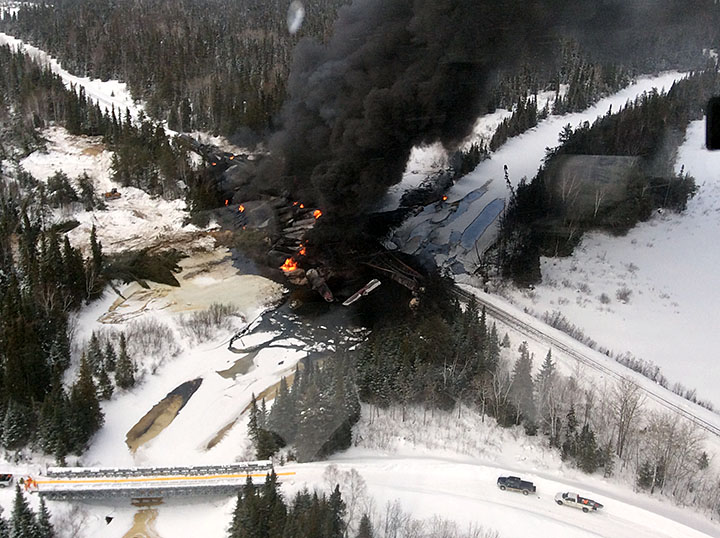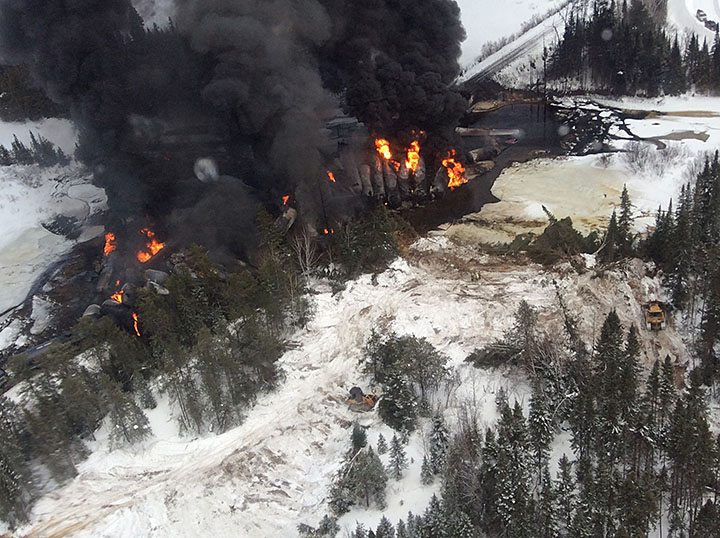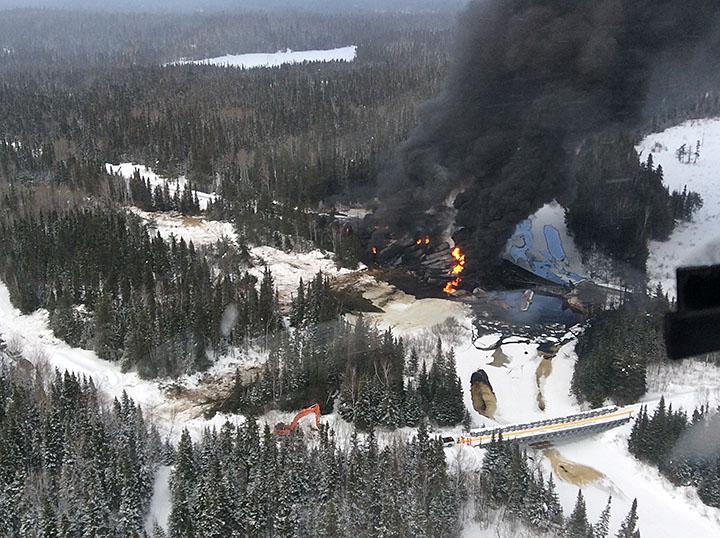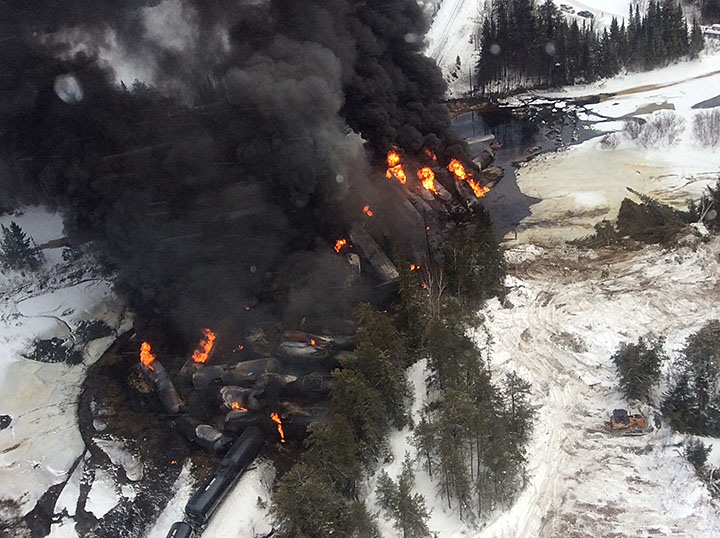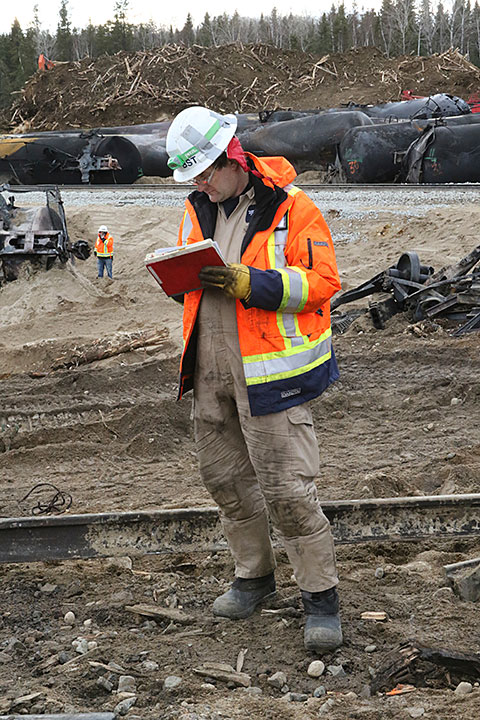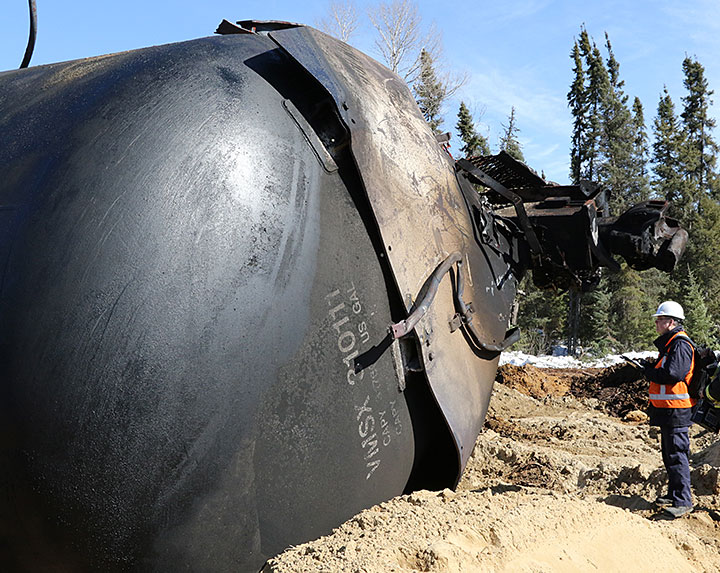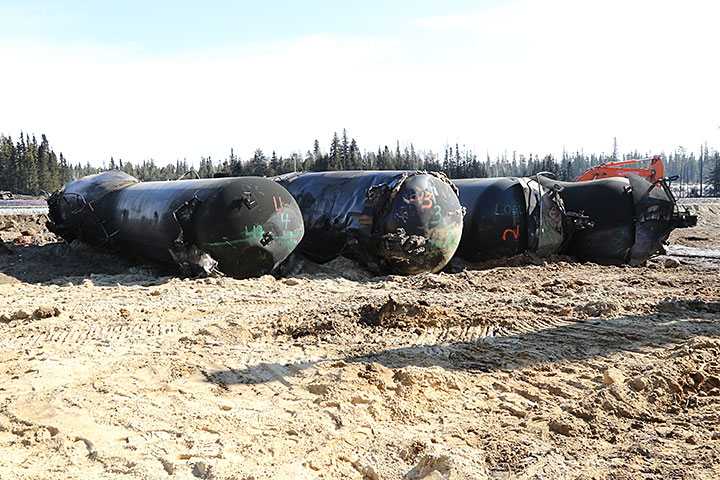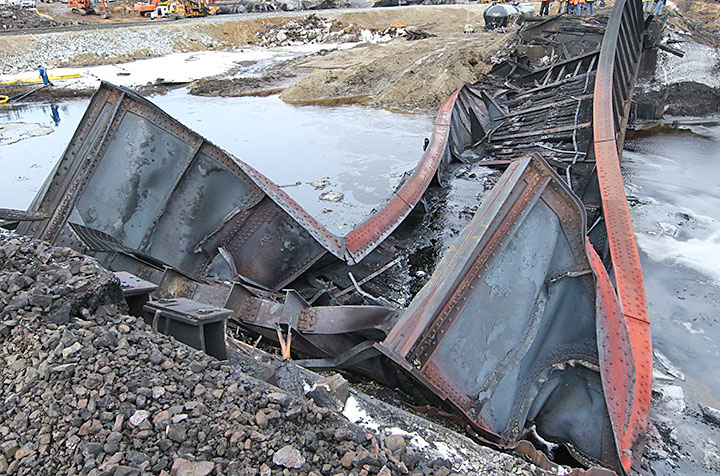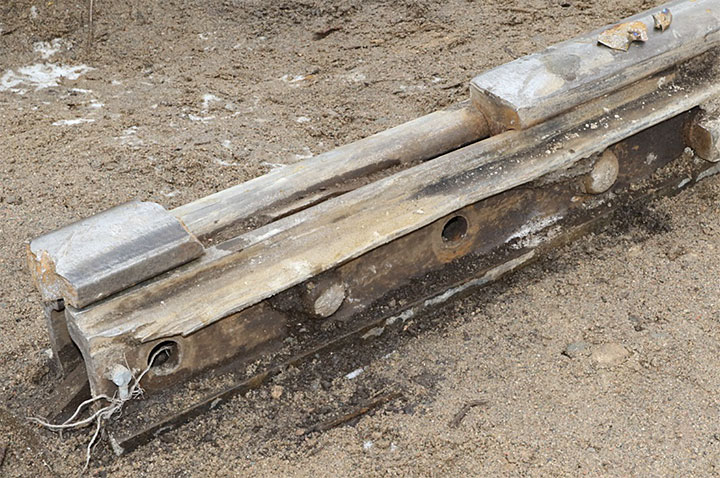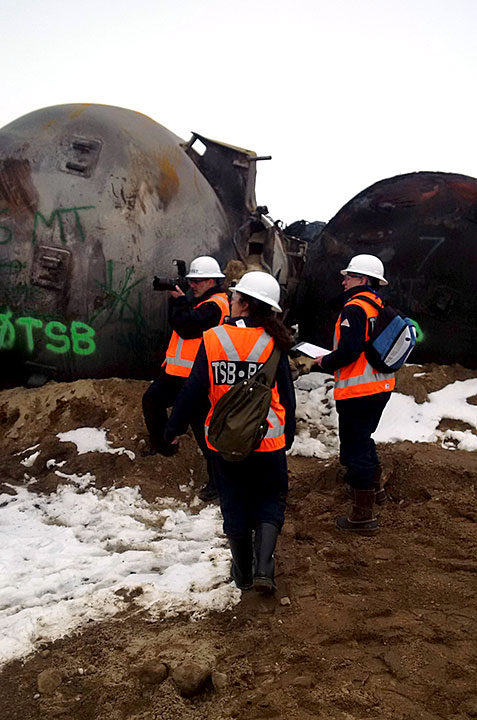Main-track train derailment
Canadian National Railway Company
Freight train U70451-02
Mile 88.75, Ruel Subdivision
Gogama, Ontario
The occurrence
On , at 0242 Eastern Standard Time, Canadian National Railway Company (CN) crude oil unit train U70451-02 was proceeding eastward at about 43 mph on CN's Ruel Subdivision when it experienced a train-initiated emergency brake application at Mile 88.70, near Gogama, Ontario. A subsequent inspection determined that the 6th to the 44th cars (39 cars in total) had derailed. As a result of the derailment, about 2.6 million litres of petroleum crude oil (UN1267) was released to atmosphere, water, or surface. The released product ignited and caused explosions, and some product entered the nearby Makami River. A CN bridge over the Makami River (at Mile 88.70) and about 1000 feet of track were destroyed. There was no evacuation, and there were no injuries.
Safety communications
Recommendations
TSB Recommendation R17-02: The Department of Transport acquire rail surface condition data, including information on localized surface collapse, rail end batter and crushed heads, and incorporate it into its risk-based planning approach for targeted regulatory track inspections.
Safety advisories
Rail Safety Advisory Letter 04/15: Condition of track infrastructure on CN Ruel subdivision
Other correspondence
Letter to Transport Canada regarding: Replacement and Retrofit of Class 111 Tank Cars
Letter to the Pipeline and Hazardous Materials Safety Administration regarding: Replacement and Retrofit of Class 111 Tank Cars
Media materials
News releases
TSB recommends the use of leading indicators to help better focus track inspections following 2015 derailment near Gogama, Ontario
Read the news release
Derailment and fire of second Canadian National crude oil train near Gogama, ON
Read the news release
Backgrounders
Speeches
News conference for Gogama (R15H0021): Opening remarks
Kathy Fox,
Chair, Transportation Safety Board of Canada
Rob Johnston,
Manager Central regional operations, Transportation Safety Board of Canada
Deployment notice
TSB deploys team to crude oil train derailment and fire 3 km west of Gogama, Ontario
The Transportation Safety Board of Canada (TSB) is deploying a team of investigators to a derailment and fire involving a crude oil train operated by CN approximately 3 km west of Gogama, Ontario. This accident is approximately 37 km from the site of a previous accident involving a CN unit crude oil train which occurred on 14 February 2015. The TSB will gather information and assess the occurrence.
Investigation information
Download high-resolution photos from the TSB Flickr page.
Class of investigation
This is a class 2 investigation. These investigations are complex and involve several safety issues requiring in-depth analysis. Class 2 investigations, which frequently result in recommendations, are generally completed within 600 days. For more information, see the Policy on Occurrence Classification.
TSB investigation process
There are 3 phases to a TSB investigation
- Field phase: a team of investigators examines the occurrence site and wreckage, interviews witnesses and collects pertinent information.
- Examination and analysis phase: the TSB reviews pertinent records, tests components of the wreckage in the lab, determines the sequence of events and identifies safety deficiencies. When safety deficiencies are suspected or confirmed, the TSB advises the appropriate authority without waiting until publication of the final report.
- Report phase: a confidential draft report is approved by the Board and sent to persons and corporations who are directly concerned by the report. They then have the opportunity to dispute or correct information they believe to be incorrect. The Board considers all representations before approving the final report, which is subsequently released to the public.
For more information, see our Investigation process page.
The TSB is an independent agency that investigates air, marine, pipeline, and rail transportation occurrences. Its sole aim is the advancement of transportation safety. It is not the function of the Board to assign fault or determine civil or criminal liability.
